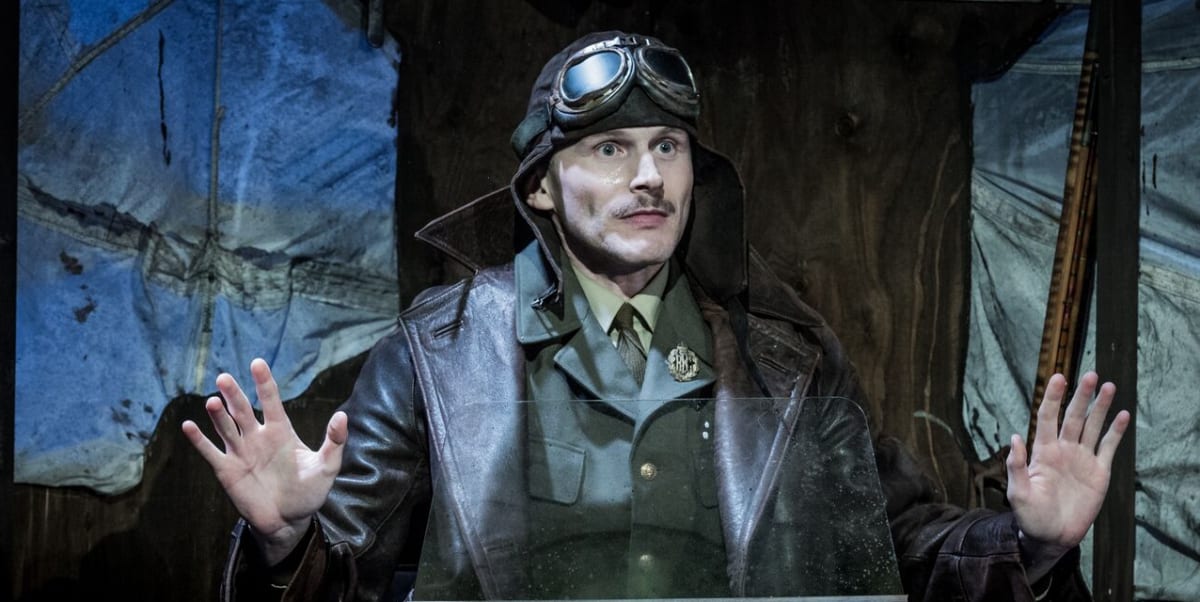Once again Jermyn Street Theatre, with their tiny basement auditorium in central London, has found a fascinating curiosity of a play/musical to put on. It’s chosen presumably because it tells a story that illuminates a little-known aspect of the Great War as we reach the centenary of the armistice that ended the hostilities. Its format is more a play with songs than a musical but the fine performances of the two actors – especially in delivering the tuneful ditties that provide a series of pithy comments about the story that is being told – are an indispensable part of the whole drama.
Billy Bishop is a bit of a ne’er-do-well from Owen Sound in Ontario and arrives in the UK as a somewhat reluctant part of the Canadian contribution to the war effort. He transfers from the cavalry to the Royal Flying Corps as an observer and then, with a bit of somewhat inexplicable help from Lady St Helier, he gets taken on as a pilot. Much to his own surprise, and the surprise of his superior officers, he becomes a very successful fighter pilot. He battles with the English high command who don’t value a ‘colonial’ flyer very highly but he ends up with more ‘kills’ than any other RFC or RAF pilot. He returns to Canada as a hero.
The story is brilliantly told by two actors. Charles Aitken plays the young Billy – and a host of other characters – and Oliver Beamish plays the older Billy also doubling a range of minor roles. Charles Aitken manages to pull off the difficult trick of portraying the wild colonial boy and the maturing fighter pilot with real conviction – and even manages to hint that there might be a just a trace of inner turmoil in a young man who, for most of the time, seems able only to dimly imagine the deaths of other young men just like him who happen to be ‘huns’. This is without much help from the script, which gives much more attention to the thrill of the aerial dogfight than to the seventy or so deaths that Billy is proud to claim. Only when he actually sees two German flyers falling to earth does he seem to acknowledge the horror of his ‘victories’. Billy in old age is similarly free of any obvious regrets for his role in a conflict, which wiped out so many young men on both sides. The splendid Oliver Beamish plays the role straight and does lead the audience to share his slightly bemused reflections on the extraordinary life of a young man whose talents as a flyer and a marksman led to his survival for nearly two years when the average lifespan of pilots was eleven days. Beamish also plays the piano for the songs that punctuate the action and his duets with Aitken are consistently poignant and pointed.
The set is, despite the tiny stage, an admirably cluttered room in a house somewhere – the action moves between Canada, England, and France – and the design lends a welcome air of routine realism to the telling of a story that sometimes teeters on the edge of ‘Boys Own’ heroics. The play is a brave choice for the Jermyn Street team and, given its place in Canadian theatre history, it is right that London audiences get to see it. But the pleasures of the show are in the performances and in the music. The text may offer an accurate depiction of a view of the war from Canada – but as an insight into the carnage on, or above, the fields of Flanders, it has disappointingly little to say.

